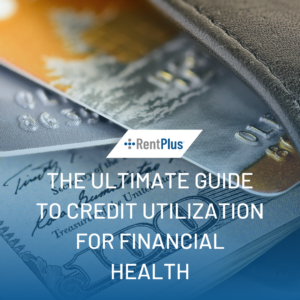Millennials are known for having bad credit. In fact, according to TransUnion, 43 percent of millennials have subprime scores. With these high numbers, it’s not surprising to discover that many millennials feel like they’ve suffered negative affects due to their score. But, just how much does a low credit score affect millennials?
A survey of 2,000 Americans, conducted by the polling company OnePoll at the request of Opploans, showed that a significant percentage of millennials expressed frustrations with poor credit scores.
• 27 percent of millennials said a bad credit score hurt their chances of buying a car.
• 26 percent said a poor credit hurt their chances of getting a loan.
• 23 percent said a poor credit hurt their chances of getting a credit card.
• 25 percent said a poor credit hurt their chances of getting an apartment or a house.
• 14 percent said they lived with roommates because they couldn’t rent on their own due to bad credit.
Most millennials have discovered they have a lot to learn when it comes to finances. In fact, of the millennials who missed credit card payments in the above survey, 36 percent said they simply forgot about it. And a significant percentage of millennials who took the survey said they felt unprepared for the financial challenges that ended up hurting their credit.
Due to these negative consequences, many millennials are trying to fix their poor credit. But what can millennials do to improve their poor credit?
Opploans offered 7 tips to help millennials “avoid credit damage and begin to build a strong credit history.”
1. Use a free budgeting app.
Millennials are very tech savvy. They like to store as much info as possible on one device: their phone. Fortunately, there are some really good budgeting apps available to help them get their finances on track. The first step to financial independence is to manage your current finances.
For members of the RentPlus community, we offer an empowering personal financial management tool, called RentPlusMoney. And it’s free to all RentPlus members. Take advantage of this useful tool today.
2. Check your credit report.
You should check your credit report at least once a year. In fact, you can get a free credit report once a year upon request. Knowledge is power when it comes to your finances. The more you know about what makes up your credit score, the more you can do to fix any underlying problems.
3. Go Cash-Only.
While credit cards are a good way to build credit, many people don’t understand how to use them correctly. If used incorrectly, you could find yourself in over your heads with credit card debt – which is not good for your credit score. So, if you feel like you can’t control your credit card spending habits, the cash-only method may be the best one for you.
But, don’t worry, there are plenty of other ways to build your credit. You could report your monthly rent payments to credit bureaus via RentPlus. Or you could make consistent, on-time payments towards a loan to pay off debt.
4. Set Up Automatic Payments.
If you always forget make payments on time, this may be the route to go. By setting up automatic payments, you can pay your bills on time without the worry of late fees. Just make sure there’s always enough money in your account when the automatic payments go through. You don’t want to end up with any overdraft fees on your account.
5. Call if you’re behind.
Creditors often lose money when they sell your debt to a collection agency. If you call them and offer them a solution for how you can pay your bill, they might be more likely to give you another chance. This doesn’t always work, but it’s worth a try.
6. Close old utility accounts.
Did you know that when you move you need to close your old utility accounts? A lot of millennials don’t realize the importance of doing this. But, forgetting to close these accounts could really create some damage on your credit.
7. Open A Savings Account.
There’s a reason why they call it a savings account. Savings accounts are set up to make it easier to save money than to spend it. If you find that you’re spending more than you’re saving, start putting some money in your savings account each month to build it up and start earning some interest. This can help build your credit and improve your financial security.
Millennials don’t have to suffer from poor credit forever. Just follow these simple tips and your credit will start improving before you know it.



